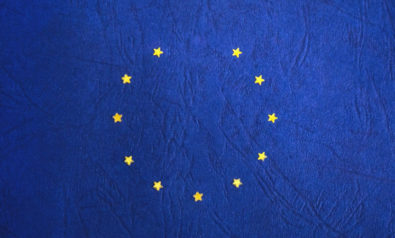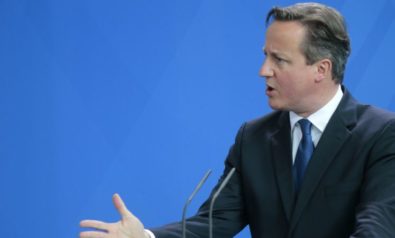The next British government has a lot of work to do when it comes to negotiating new trade agreements. Former Prime Minister John Bruton explains.
Now that the United Kingdom has voted to leave the European Union (EU), the first step has to be taken by the British government. It must decide what sort of relationship it wants to have, trade wise, with the rest of the world. At the moment, that is governed by agreements negotiated—for the UK—by the EU.
If Britain simply leaves the EU, all those agreements will fall apart, as does UK membership of the World Trade Organization (WTO). Agreements with dozens of non-EU countries will have to be negotiated again—at the same time as negotiating with the EU. There is clearly a lot of work to be done.
So, the British government will have to choose choice between three options: leave the EU and, like Norway, apply to join the European Economic Area (EEA); negotiate a new special trade agreement, like the one Canada or Switzerland has with the EU; or leave the EU without any trade agreement and apply, as a separate country, to join the WTO.
Option 1: Join the European Economic Area
The EEA option could be put in place quickly and would not disrupt trade all that much. The EEA is a readymade model for external association by a non-member with the EU. It could be taken down from the shelf, so to speak.
But, as an EEA member, the UK would still have to implement EU regulations and contribute to the EU budget. It would not allow curbs on EU immigration. The EEA option has been dismissed by Vote Leave campaigners, but it does involve leaving the EU and complies with the literal terms of the referendum decision.
If the UK experiences severe balance of payments problems over the summer, the EEA option may become attractive. The United Kingdom already has a big balance of payments deficit and capital inflows may be inhibited by the leave vote. The EEA option would buy time and would not preclude leaving altogether eventually.
Option: 2 The Canada and Switzerland Model
The second option, a special trade deal, would be much more difficult. It would require a detailed negotiation on every type of product or service sale between the UK and the 27 member countries of the EU, including across our border.
In some respects, British voters have just mistakenly blamed the EU for the effects of the omissions—and underperformance—of successive UK governments.
Such an agreement would take years to negotiate (probably seven or eight) because it would be subject to domestic political constraints—and political blackmail attempts—in all EU countries, each of whom would have to ratify it. If the UK proposed curbs on immigration from the union, the EU countries affected would use difficulties with other aspects of the deal as a bargaining counter.
It is unlikely that a trade agreement would allow the UK to sell financial services in the EU. Indeed, it would be in the interest of EU countries that might hope to attract financial services to make sure the UK gets few concessions.
Option 3: Leave the EU With No Agreement
The third option—leaving the EU with no agreement—could come about, either because that is what the UK might choose, or because negotiations on a special trade deal might break down or might be not ratified by one or two EU states.
It would require the application of the EU common external tariff to British or Northern Irish products crossing the border into the Republic of Ireland.
Average EU tariffs are around 4%, but on agricultural goods the mean tariff is 18%. The imposition of these tariffs is a key part of the Common Agricultural Policy, which protects the incomes of EU farmers. We would have no option but to collect them at customs posts along our border. All forms of food manufacturing and distribution within the two islands would be disrupted.
The disruption of the complex supply chain of the modern food industry would be dramatic and the knock-on effects impossible to calculate. A similar effect might be felt by the car parts industry, which is subject to tariffs and is important to some parts of England.
Reforming the EU
Meanwhile, the remaining 27 countries of the EU—and the EU institutions—will have a lot of thinking to do too. They need to respond decisively to the (false) claim that the EU is not democratic.
All EU legislation has to be passed by a democratically elected European Parliament and also by a Council of Ministers, who represent the democratically elected governments of the 28 EU countries. The members of the European Commission must be approved by the democratically elected European Parliament.
But there is room to further improve EU democracy.
First, the president of the European Commission should be directly elected by the people of the EU in a two-round election—at the same time as the European Parliament elections—every five years.
Second, a closer link must be established between national parliaments and the EU. A minimum of nine national parliaments agreeing should be sufficient to require the European Commission to put forward a proposal on a topic allowed by the EU treaties. National parliaments can already delay EU legislation, so they should be free to make positive proposals too.
Is the British Government to Blame?
That said, the EU should avoid overpromising and should not allow itself to be blamed for all the problems people face in their daily lives. The EU is not an all-powerful monolith that can solve the problems caused by technological change and globalization. It is just a loose voluntary confederation of 28 countries with no tax raising powers of its own. Nor is the EU responsible for debts mistakenly taken on by its members.
If the losers of globalization and technological change are to be sheltered from misfortune, it is for the remaining 27 states—not the EU itself—that have the taxing power to redistribute money from the winners from globalization to the losers.
The UK has not been particularly generous in this regard. Its welfare system is modest and its investment in productivity improvement has been poor. In some respects, British voters have just mistakenly blamed the EU for the effects of the omissions—and underperformance—of successive UK governments.
The views expressed in this article are the author’s own and do not necessarily reflect Fair Observer’s editorial policy.
Photo Credit: UK Home Office
 We bring you perspectives from around the world. Help us to inform and educate. Your donation is tax-deductible. Join over 400 people to become a donor or you could choose to be a sponsor.
We bring you perspectives from around the world. Help us to inform and educate. Your donation is tax-deductible. Join over 400 people to become a donor or you could choose to be a sponsor.
Support Fair Observer
We rely on your support for our independence, diversity and quality.
For more than 10 years, Fair Observer has been free, fair and independent. No billionaire owns us, no advertisers control us. We are a reader-supported nonprofit. Unlike many other publications, we keep our content free for readers regardless of where they live or whether they can afford to pay. We have no paywalls and no ads.
In the post-truth era of fake news, echo chambers and filter bubbles, we publish a plurality of perspectives from around the world. Anyone can publish with us, but everyone goes through a rigorous editorial process. So, you get fact-checked, well-reasoned content instead of noise.
We publish 2,500+ voices from 90+ countries. We also conduct education and training programs
on subjects ranging from digital media and journalism to writing and critical thinking. This
doesn’t come cheap. Servers, editors, trainers and web developers cost
money.
Please consider supporting us on a regular basis as a recurring donor or a
sustaining member.
Will you support FO’s journalism?
We rely on your support for our independence, diversity and quality.

































